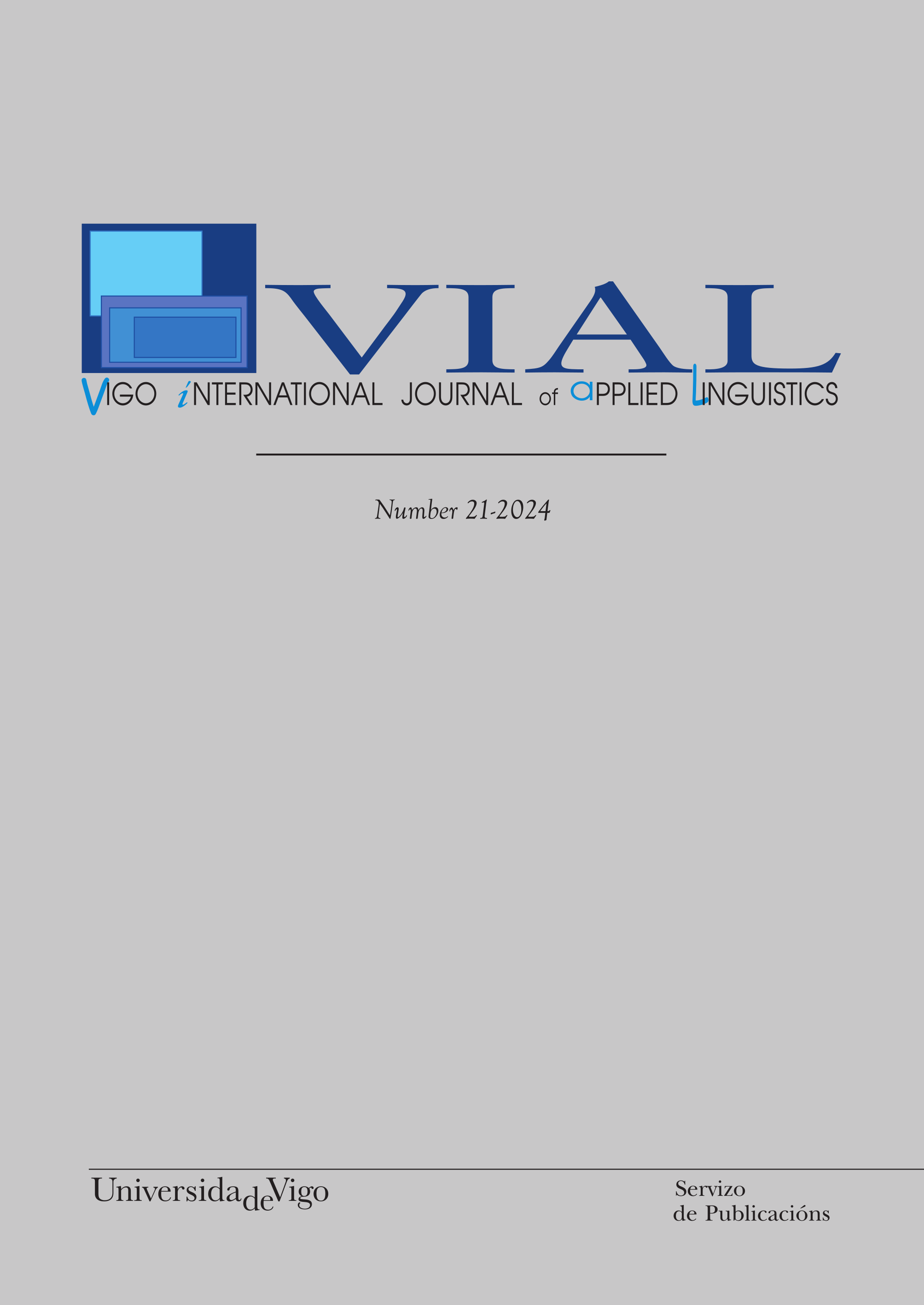Association of lexical and collocation knowledge: A comparative analysis of native speakers and nonnative learners of English
DOI:
https://doi.org/10.35869/vial.v0i21.4165Abstract
To provide a comprehensive estimate of Korean college students’ lexical competence, this study compared L2 learners’ (EFL) use of single words and collocations with that of native speakers (NSs). The study compiled two text corpora, one from an existing native corpus and the other with texts from Korean EFL learners at three proficiency levels. There were significant differences between the two corpora in lexical diversity, although the difference between advanced EFL learners and NSs was non-significant, indicating that advanced learners were on par with NSs in terms of using a diverse range of words. In a comparison of lexical distribution of single words, however, these advanced learners were found to use words between the 1K and 4K level, whereas NSs used words beyond this level. This suggests the need to cover a wider range of words in classroom teaching and assessment. Regarding collocational knowledge, the difference between the NSs and EFL group was apparent and statistically significant, regardless of learners’ proficiency levels. Namely, EFL learners used far fewer collocations in a smaller range than their counterparts. The learners’ limited collocational competence indicates that collocations should be considered an integral component of the curriculum, instruction, and assessment.
Downloads
Downloads
Veröffentlicht
Ausgabe
Rubrik
Lizenz
Revistas_UVigo es el portal de publicación en acceso abierto de las revistas de la Universidade de Vigo. La puesta a disposición y comunicación pública de las obras en el portal se efectúa bajo licencias Creative Commons (CC).
Para cuestiones de responsabilidades, propiedad intelectual y protección de datos consulte el aviso legal de la Universidade de Vigo.



